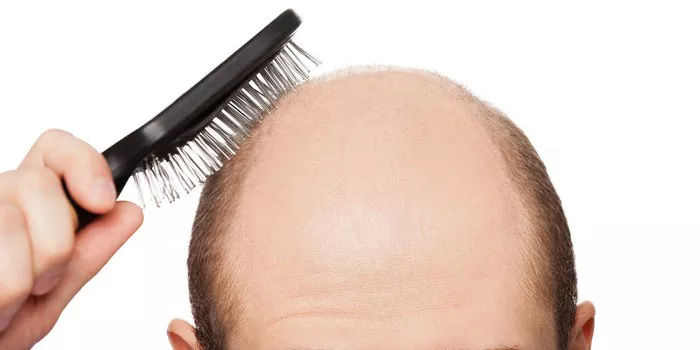When it comes to hair loss, there’s often more to it than meets the eye. While genetic predisposition and hormonal factors play a significant role, one often-overlooked contributor is nutritional deficiencies. In this comprehensive guide, we’ll delve deep into the connection between hair loss and deficiencies in essential nutrients. Armed with knowledge, you can take proactive steps to promote healthy hair growth and address the root causes of your hair loss concerns.
The Impact of Nutritional Deficiencies on Hair Health
Nutritional deficiencies exert a profound influence on the health of your hair. These deficiencies can result in weakened hair follicles, making your strands more susceptible to breakage and thinning. Moreover, they can slow down the rate of hair growth, leading to visibly reduced regrowth and an overall thinner appearance. Dull and lifeless hair is another consequence, as a lack of essential nutrients can rob your locks of their natural shine and vibrancy. Recognizing these impacts is crucial in addressing the root causes of hair loss and taking steps to ensure your hair receives the vital nutrients it needs to thrive and remain resilient.
The Culprits: Nutrients Linked to Hair Loss
Now, let’s examine the specific nutrients that have been associated with hair loss. Recognizing these deficiencies and addressing them through diet or supplements can be a crucial step in mitigating hair loss:
1. Iron Deficiency
Iron is vital for the production of hemoglobin, a protein that carries oxygen to hair follicles. Without sufficient iron, hair follicles may not receive an adequate oxygen supply, leading to hair thinning and potential hair loss.
2. Vitamin D Deficiency
Vitamin D plays a role in hair follicle cycling, and its deficiency has been linked to hair loss conditions like alopecia areata. Ensuring you get enough sunlight and dietary sources of vitamin D can be essential.
3. Biotin Deficiency
Biotin, also known as vitamin B7, is crucial for healthy hair. It aids in the production of keratin, a protein that makes up your hair strands. A biotin deficiency can result in brittle and thinning hair.
4. Zinc Deficiency
Zinc is involved in tissue growth and repair, making it vital for maintaining healthy hair follicles. A lack of zinc can lead to hair loss and even scalp conditions.
5. Protein Deficiency
Protein is the foundation of hair, and insufficient protein intake can lead to hair that’s weak, brittle, and prone to shedding.
Detecting Nutritional Deficiencies and Hair Loss
Identifying the specific nutrient deficiency responsible for your hair loss can be a challenge. However, there are several signs and symptoms to watch out for:
1. Excessive Hair Shedding
If you notice an unusual amount of hair in your comb or on your pillow, it may be a sign of nutritional deficiency.
2. Fatigue and Weakness
Some deficiencies, like iron deficiency, can lead to fatigue and weakness, in addition to hair loss.
3. Pale Skin and Brittle Nails
These can also be indicators of nutrient deficiencies that are affecting your hair health.
Addressing Nutritional Deficiencies for Hair Regrowth
Now that we’ve covered the role of nutrients in hair health and how to recognize potential deficiencies, let’s explore steps to address these issues and promote hair regrowth:
1. Consult a Healthcare Professional
If you suspect a nutritional deficiency is causing your hair loss, consult a healthcare professional for blood tests and a proper diagnosis.
2. Adjust Your Diet
Incorporate foods rich in the deficient nutrient into your diet. For example, iron-rich foods like lean meats and spinach can help with iron deficiency.
3. Consider Supplements
In some cases, supplements may be necessary to address severe deficiencies. Your healthcare provider can recommend appropriate supplements and dosages.
4. Maintain a Healthy Lifestyle
A balanced diet, regular exercise, and stress management can all contribute to overall hair health. These lifestyle factors can complement your efforts to combat hair loss.
See Also: Stopping Hair Fall After Weight Loss: Effective Strategies
Conclusion
In conclusion, understanding the connection between nutritional deficiencies and hair loss is a crucial step in tackling this common concern. Nutrients like iron, vitamin D, biotin, zinc, and protein are essential for healthy hair growth. If you suspect a deficiency may be contributing to your hair loss, seek professional guidance for an accurate diagnosis and a tailored approach to address the issue. By taking proactive steps to correct these imbalances, you can improve your hair’s health and, in many cases, promote regrowth, leading to the luscious locks you desire.


